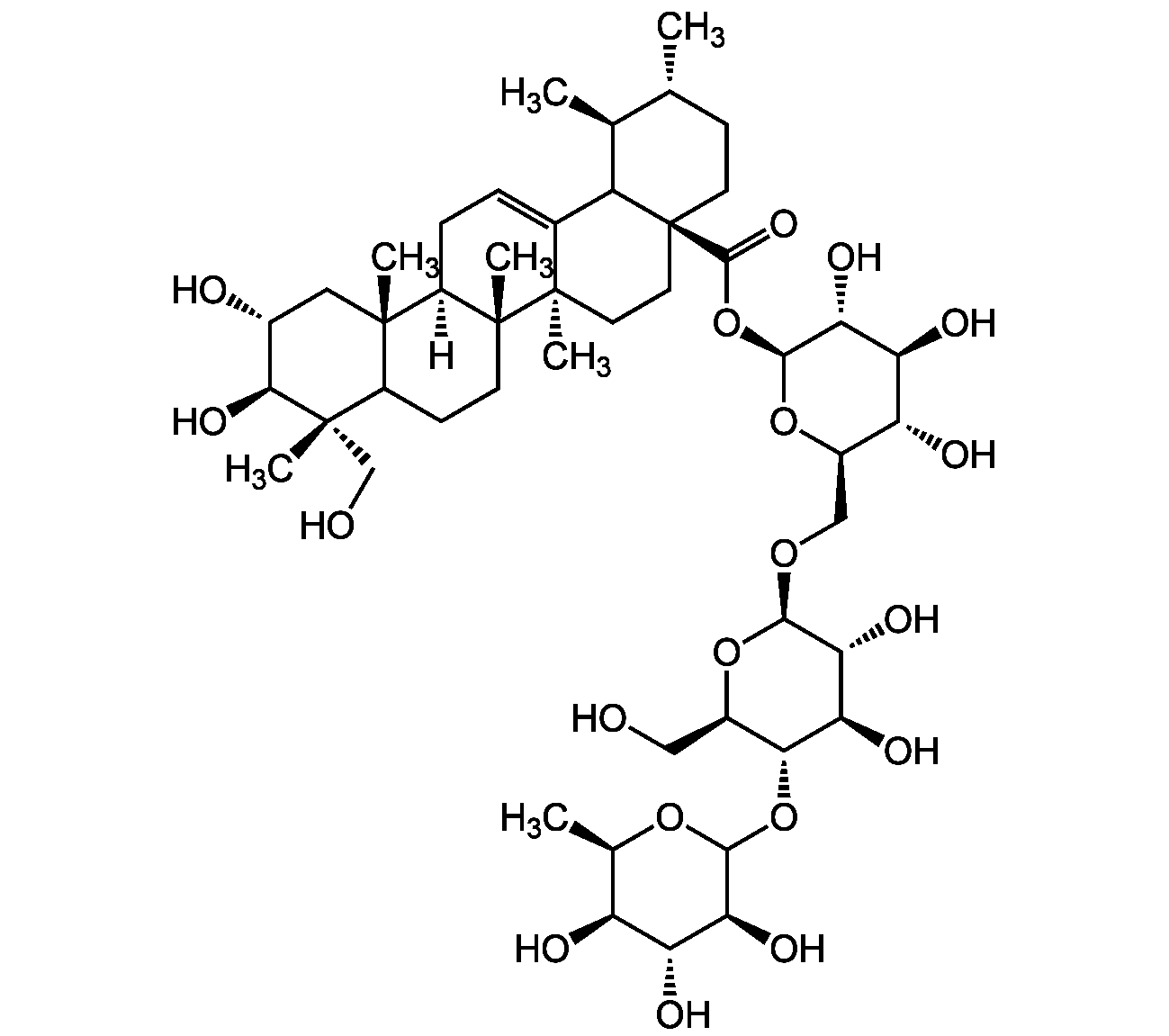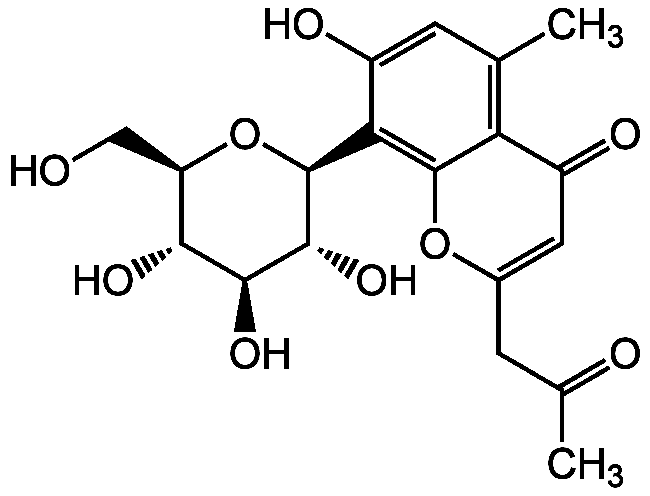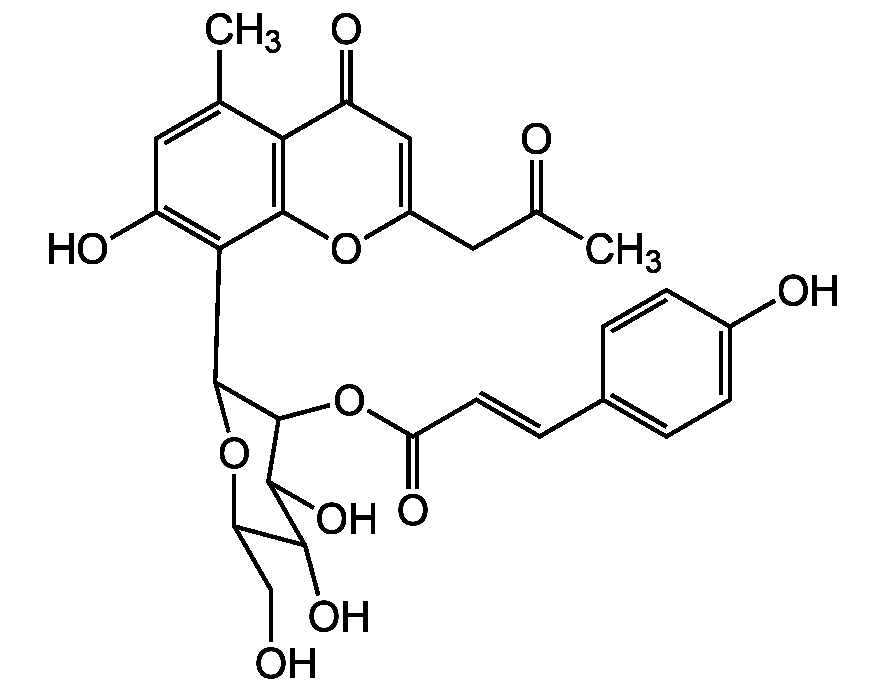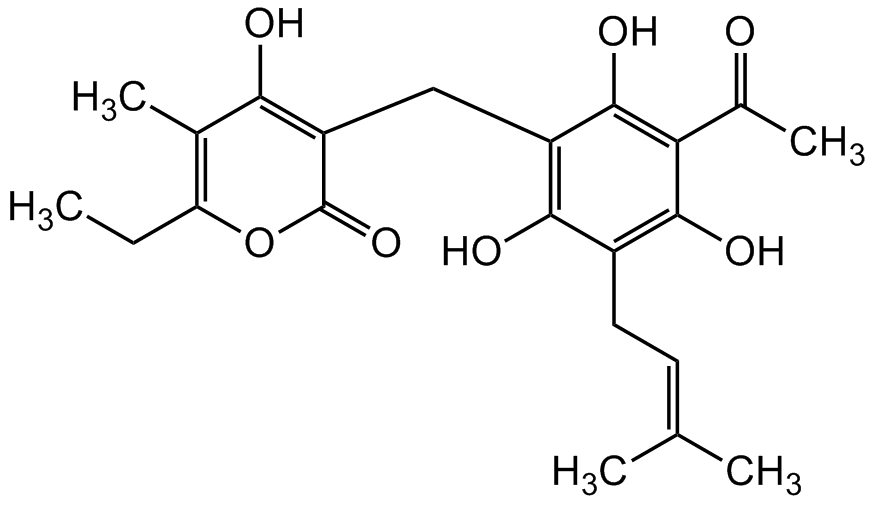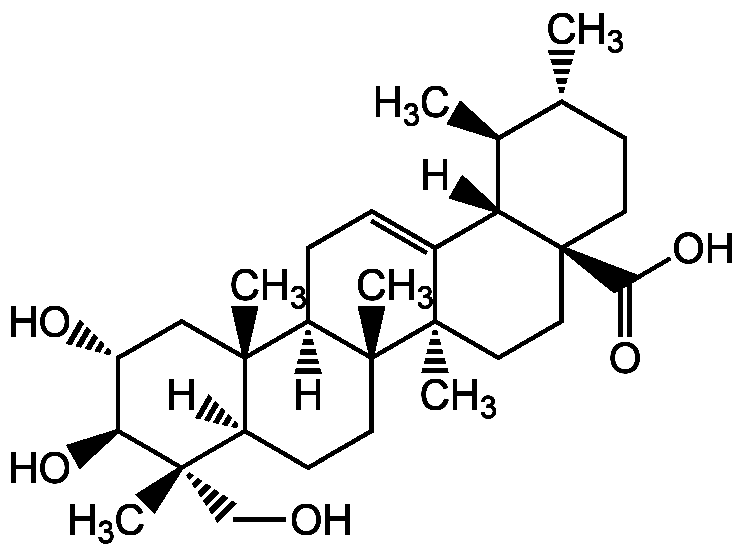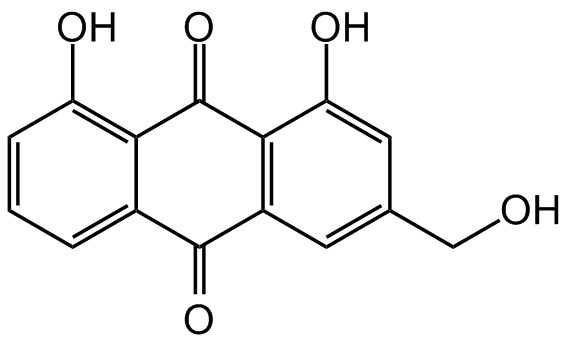
Chemical Structure
Aloe-Emodine [481-72-1] [481-72-1]
CDX-A0658
CAS Number481-72-1
Product group Chemicals
Estimated Purity>98%
Molecular Weight270.24
Overview
- SupplierChemodex
- Product NameAloe-Emodine [481-72-1] [481-72-1]
- Delivery Days Customer2
- CAS Number481-72-1
- CertificationResearch Use Only
- Estimated Purity>98%
- Hazard InformationWarning
- Molecular FormulaC15H10O5
- Molecular Weight270.24
- Scientific DescriptionAloe-emodin is a naturally anthraquinone derivative and an active ingredient of Aloe vera leaves and other plants. Aloe-emodin has been shown to exhibit many pharmacological effects, including anticancer, antivirus, anti-inflammatory, antibacterial, antiparasitic, neuroprotective, and hepatoprotective activities. It has potent laxative action by activating CFTR Cl- channels and inducing chloride secretion in colonic mucosa and releasing acetylcholine, which stimulates contraction of intestinal smooth muscle. It also demonstrates anti-tumor activity, inducing apoptosis in various cancer cells by increasing the production of reactive oxygen species (ROS) and induces apoptosis in glioma models through disruption of the mitochondria membrane potential. Aloe-emodin is reported to have estrogenic activity as a phytoestrogen, has been shown to inhibit breast cancer cell proliferation by downregulating ERalpha protein levels, and neuroprotective effects in vivo. - Chemical. CAS: 481-72-1. Formula: C15H10O5. MW: 270.24. Aloe-emodin is a naturally anthraquinone derivative and an active ingredient of Aloe vera leaves and other plants. Aloe-emodin has been shown to exhibit many pharmacological effects, including anticancer, antivirus, anti-inflammatory, antibacterial, antiparasitic, neuroprotective, and hepatoprotective activities. It has potent laxative action by activating CFTR Cl- channels and inducing chloride secretion in colonic mucosa and releasing acetylcholine, which stimulates contraction of intestinal smooth muscle. It also demonstrates anti-tumor activity, inducing apoptosis in various cancer cells by increasing the production of reactive oxygen species (ROS) and induces apoptosis in glioma models through disruption of the mitochondria membrane potential. Aloe-emodin is reported to have estrogenic activity as a phytoestrogen, has been shown to inhibit breast cancer cell proliferation by downregulating ERalpha protein levels, and neuroprotective effects in vivo.
- SMILESOC1=C2C(C(C(C=C(CO)C=C3O)=C3C2=O)=O)=CC=C1
- Storage Instruction2°C to 8°C,RT
- UNSPSC12352200


